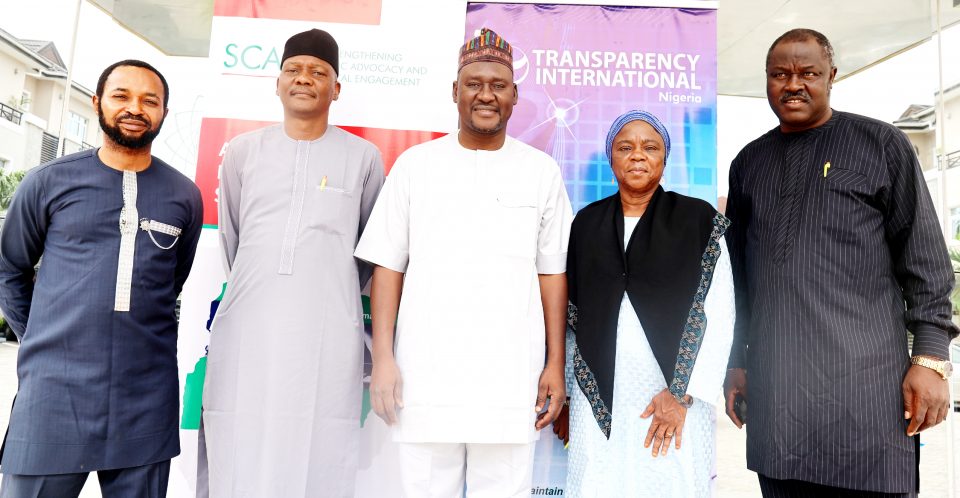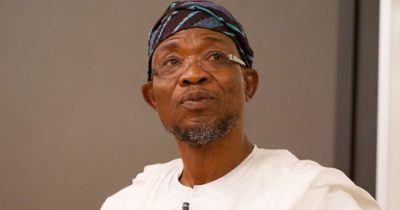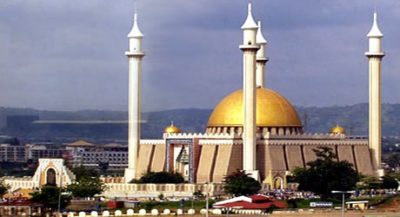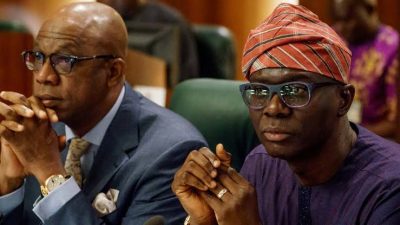*Impediment hiding Beneficial Ownership to anti-corruption fight – Sources
By BASHIR ADEFAKA
The Civil Society Advocacy Legislative Centre (CISLAC) has declared that Nigeria has done well allowing to materialise the commitment it made to strengthening anti-corruption reforms, first step of which it says is through the Companies and Allied Matters Act (CAMA) 2020.
CISLAC said the Federal Government of Nigeria made the commitment when it joined the Open Government Partnership (OGP) in a bid to deepen institutional and policy reforms.
Executive Director of CISLAC, Malam Auwal Ibrahim Musa (Rafsanjani), made this commendation in his opening remarks at a one-day ‘Policy Dialogue on Beneficial Ownership Transparency in the Nigerian extractive Sector’, held in Ikeja, Lagos State capital, on Thursday.
The DEFENDER reports that the dialogue became imperative to shape advocacy for policy and legal reforms for the effective implementation of Beneficial Ownership Transparency (BOT) in Nigeria.
“One of the commitments within the anti-corruption agenda in the consolidation of existing and new reforms was the establishment of a Public Central Register of Beneficial Owners of companies. Six years after this bold commitment, we stand before the Nigerian public and international community to say that we have crossed the first bridge which is having the CAMA amended to support the beneficial ownership registry establishment.
“Kudos to all and sundry who worked tirelessly to have this law amended, particularly the Nigeria Extractive Industries Transparency Initiative (NEITI) for making commendable efforts in establishing an extractive sector register,” the CISLAC boss said.
Themed ‘Accountability in the Extractive Sector Cluster’, the dialogue, organised by CISLAC that is Nigeria’s chapter for Transparency International in collaboration with SCALE: Strengthening Civic Advocacy and Local Engagement, seeks to interrogate the system is programmed to work for the people.
Speaking off his prepared speech at a point, Rafsanjani, taking reference from an earlier publication titled ‘Nigeria’s dirty money and real estate’, noted that the real estate is where the real corruption is taking place.
“If you go to Abuja and Lagos, you will find mighty estates that nobody occupies. Nobody can explain who the owners of those houses are. What that means, most of the times is that, the houses are owned by civil servants who are using them to hold down their stolen money.
“In London, many houses are owned by Nigerians which serve no purpose for them. Nigerians even go to buy houses in Niger Republic. Some of them now go into buying gold because gold worth several volumes of dollars can be put in one’s pocket and nobody nows you carry it.
“These are the areas EFCC should look into because, who are we? We are just NGOs. It is because we can cannot be the one to take action on these areas of corruption that we are pointing them out to government and its agencies who are supposed to act, to act,” the CISLAC boss said.
At the event, a revelation was made as to how beneficial ownership of companies, not being transparent but concealed beyond comprehension, is one way area of endemic corruption in the country which, per adventure, had necessitated the participation, essentially, of Corporate Affairs (CAC) in the discourse to tell how they are working to ensure that real owners of companies are the ones they register.
In the submission of one of the resource persons, “Any company company registered before May 2021 were declared by CAC as inactive. Those registered within that period and beyond are declared active. Not as if those declared inactive are none existing companies, they are, bit also nce a search is conducted and the company is signalled ‘inactive’, it becomes a trigger that will now require the company owners of the company to go back to CAC and its records by now supplying its true BO – Beneficial Ownership,” he said.
This becomes a must-do, he said because, “Where the work is, it is not the share company but the real person behind the mask that makes the masquerade a spirit.”
Corroborating his position, CISLAC official that anchored the all-important event said, “This is why we are here. We are here to interrogate the system that we want to work for us”.
More from his address, CISLAC ED Musa Rafsanjani said:
“While legitimate corporate businesses have an integral role in national development, the involvement of Politically Exposed Persons who conceal corruptly acquired wealth through the complex networks of companies deliberately created to hide their identities has further increased the risks they pose to non-fortified economies.
“The Siemens, Halliburton and Malabu oil scandals, to cite a few high-profile cases, had a net impact on revenue leakages that was unbearable for the country’s finances and the citizens’ economic well-being.
“We contextualize our conversations around beneficial ownership in its contemporary form as defined by the following indexes:
“1. Financial Action Task Force (FATF) whose efforts aim at promoting policies and standards that insulate global financial systems from acts of money laundering and the financing of terrorism and proliferation of weapons of mass destruction. (Article 24 & 25)
“2. Nigeria’s obligation under the United Nations Convention against Corruption (UNCAC) and other international anti-money laundering and anti-terrorism instruments to improve the transparency of legal entities and other arrangements.
“3. The global Extractive Industry Transparency Initiative (EITI) implementation of the beneficial ownership standards in this sector.
“4. We were already facing some sanctions from the European Union for the non-existence of anti-money laundering legislations; while we see and hear of prosecutions of Individuals and entities involved in the #panamapapers leaks and the #wikileaks among others, there seem to be no legal framework that enables the convictions of all that was involved from Nigeria; aside the fear of the international community, it is worthy of note here that Concealing of the beneficial owners’ costs lives of our fellow countrymen as terrorists use international financial systems to sustain their operations; Without transparent ownership of Nigerian and international companies operating within the Nigerian jurisdiction, we will not be able to stop the bleeding through illicit financial outflows which is perpetually on a geometric progressive increase year on year, which costs us annually around 17 billion US dollars, with special emphasis on the backbone of our economy, the oil and gas industry.
“5. As long as wrong incentives and dysfunctional supervision dominate our national financial systems, consequences in the form of terrorism financing, trans-national organized crime, tax evasion and illegal enrichment of politically exposed persons will prevail,” he listed.
He then made clear his position that “these points as raised above alongside other beneficial aspects of the Amended CAMA is our basis for engagement in this context. We believe that a collaborative partnership by relevant stakeholders in the beneficial ownership campaign will help give a voice to this simple but strategic endeavour that will help curb corruption in our financial, procurement and other strategic sectors and contribute effectively to domestic revenue mobilisation for financing development of critical sectors of the economy.
“We would like to extend gratitude to Palladium for the opportunity of this partnership with funding support from the United States Agency for International Development (USAID), which has made this engagement possible,” Rafsanjani said.
The conversations also unraveled the significant challenges in optimizing domestic resource revenue mobilization for sustained development financing, occasioned by the obscurity of true state of the country’s full public finance and resource management processes, which includes undisclosed ownership of corporate entities, tax evasion and avoidance.
In response to this, several initiatives and efforts have been introduced, including: the institutionalization of beneficial ownership (BO) reporting by the Nigeria Extractive Industries Transparency initiative (NEITI) through the launch of the Opening Extractives Programme (OEP) – a global five-year scheme to unveil the real owners of assets in Nigeria’s oil, gas and mining sectors in November 2021.
Part of it was also mentioned as the enactment of the Companies and Allied Matters Act (CAMA) 2020 in August 2020, which provides for the establishment of a beneficial ownership register for all corporate entities in Nigeria by the Corporate Affairs Commission (CAC) and the signing of the Petroleum Industry Bill into law in August 2021 which provides a legal framework for the effective and efficient implementation and integration of open date reforms like the beneficial ownership transparency initiative.
“However, while these efforts are commendable, it is worthy to note that BO transparency register is not an end in itself but a means to an end, as its effectiveness towards accountability in the extractive sector is yet to achieve significant results,” the dialogue on Thursday posited.
To make it achieve results, the CISLAC-led AES cluster thus proposes a policy dialogue, anchored upon the existence of and expectations from the effective implementation of the above programmes/frameworks with an aim to:
“Ascertain the status of progress in the implementation of the Beneficial Ownership transparency initiative in Nigeria;
“Identify key state actors, instrumental to delivering on the objectives of the above, as well as responsible institutions whose actions and/or inactions in the process have encouraged or should discourage the obscurity of the true state of the country’s extractive resource management processes;
“Identify opportunities for effective coordination, the establishment of a network and/or facilitating access to relevant information for effective the implementation and monitoring of BO transparency processes in Nigeria; and
“Harvest an agenda for advancing advocacy towards the effective implementation of BO in the extractive sector,” it said, which was what the Lagos dialogue was held to achieve on Thursday April 28, 2022 drawing 34 participants from the Nigeria Extractive Industries Transparency initiative (NEITI), Corporate Affairs Commission (CAC), Ministry of Petroleum Resources, Nigeria Upstream Petroleum Regulatory Commission (NUPRC), Nigeria Midstream and Downstream Petroleum Regulatory Authority (NMDPRA), South-West NSWG, Federal Inland Revenue Service (FIRS), Anti-Corruption Agencies, CSOs and Media (National Association of Energy Correspondents).
Impediment hiding Beneficial Ownership to anti-corruption fight
Generally speaking, it has in the meantime been gathered that the Economic and Financial Crimes Commission (EFCC) finds lack of transparency on the part of business owners as hampering investigation as most of them present invisible address that can’t be traced, while some even put unborn children as directors or use their family names interchangeably.
On tax, some of the company owners have also been found to evade tax by not declaring their profit or even hide their income tax under pseudonym.
Some of them, it was also gathered, do not separate company tax from personal income, which makes it difficult for the regulatory authority to regulate and monitor.
And for the extractive sector where both foreign nationals and Nigerians are involved, it is still a problem dealing with leakages as some elements still connive with them.
“To fight these battles and take the country out of corruption, all hands must be on deck. It is a collective responsibility that, if won, will move the nation forward,” we gathered from a source.




